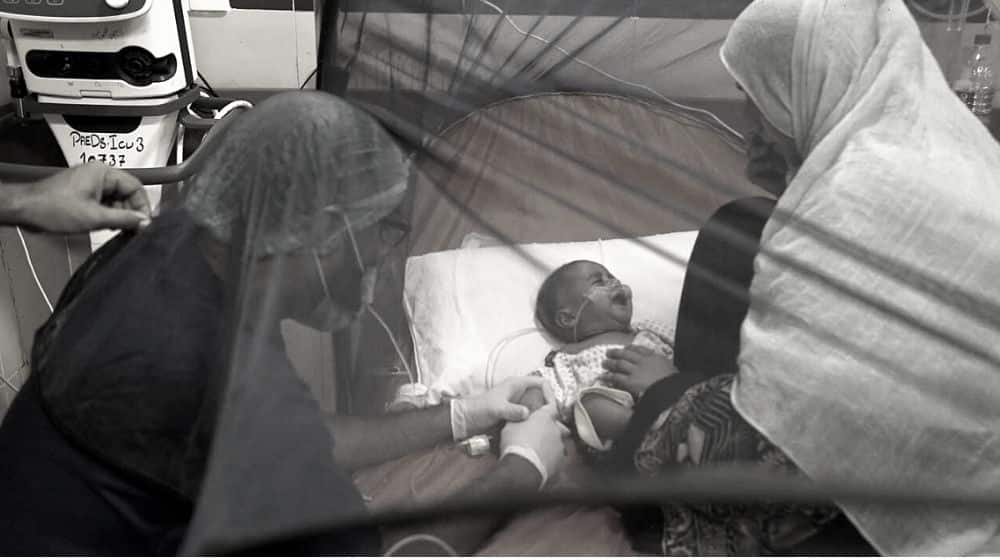At the Alliance for Malaria Prevention meeting in Nairobi at the beginning of May this year new light was shed on the failures to deliver life-saving health commodities in the form of mosquito nets and the causes of the recent spikes in malaria cases in Pakistan.
The meeting of technical experts from WHO, Global Fund, and malaria prevention program implementers from across the world brought some very startling revelations.
First, millions of people are suffering under the worst malaria outbreak in 50 years following the severe floods. Despite funding being made available and a published commitment to assist 9 months ago, the Global Fund has not yet delivered but a very small fraction of the needed health items that could have helped a population in dire need.
This is not least due to the fact, Global Fund decided to source the nets from India despite the politics and optics of such a delivery to a country that is already very sufficient in providing these products itself.
Second, it has become clear the failure to deliver basic help after one of the worst natural disasters in the history of the country comes right after an even bigger scandal; the distribution of faulty Insecticide Treated Nets (ITN) in 2020.
As reported at the Nairobi meeting by the National Program Director in Pakistan, Dr. Mukhtar, 2 million nets procured by the Global Fund from China arrived in the country with a 100% failure rate in the inspection on arrival.
Rather than conducting a proper review of the shipment with the National Program, the Global Fund sent representatives from Crown Agent, an inspection company, that was implicit in the failure as it had cleared the nets pre-shipment, to review their own work on the receiving end as well. A definition case of conflict-of-interest. Global Fund also worked against the efforts of the national program to conduct chemical testing of the faulty nets and instead insisted on their distribution across the country.
The manufacturer very clearly had no control of the quality or safety of their insecticide-treated nets. In April of this year, WHO issued a caution that their nets have been found out of specification chemically by several UN partners. That means the suppression of the investigation in Pakistan likely allowed the manufacturer to continue to deliver out-of-specification ITNs for 3 years. This would have continued if the UN agencies had not taken the obligation to investigate and report seriously. Clearly, Global Fund should have listened to the National Program of Pakistan instead of suppressing its concerns.
Pakistan’s current situation raises concerns about the treatment it is receiving. It is possible that the Global Fund has become overly fixated on meeting its procurement targets, causing it to lose sight of its goals related to delivering high-quality healthcare and making a significant impact on public health.
In light of these concerns, it is important for the donor countries supporting the Global Fund to request a thorough review of its operations and strategies. By doing so, they can ensure that the organization is effectively fulfilling its mandate and effectively addressing the healthcare needs of countries like Pakistan.





















